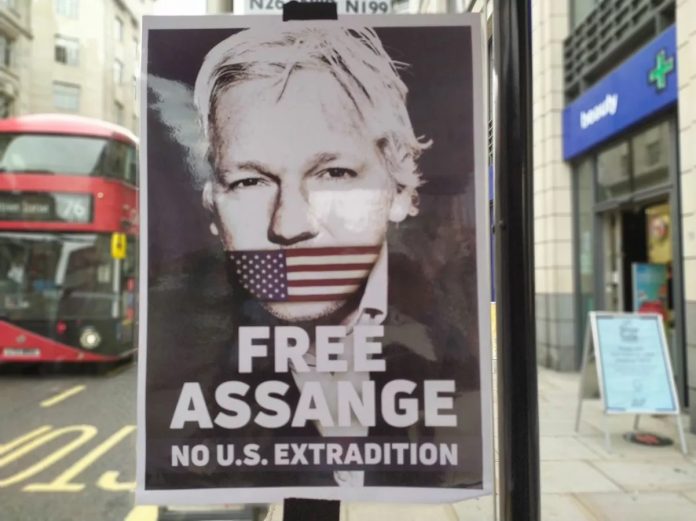WikiLeaks founder Julian Assange may be extradited to the US in the wake of the two-day hearing at London’s High Court. What would that mean for freedom of speech?
A legal team of WikiLeaks founder Julian Assange is fighting to prevent his extradition to the US where he will face 17 counts of espionage and one charge of computer misuse.
Assange, who made classified data provided to him by Chelsea (born Bradley) Manning in 2010 public, shedding light on the US’ alleged war crimes during its invasions and occupation of Afghanistan and Iraq, could receive a prison term of up to 175 years.
“If Assange were to be extradited to the United States, no journalist in the world would be safe,” Alfred de Zayas, professor of international law in Geneva, former UN independent expert on international order (2012-18), and a retired senior lawyer with the Office of the High Commissioner for Human Rights, told Sputnik.
“Essentially it would mean that any journalist who publishes information that the US government does not like would be subject to persecution and prosecution. His extradition would set a very toxic precedent that the core principle of refugee law and asylum law no longer protects persons who have a well-documented fear of persecution, as codified in article 1 of the Geneva Refugee Convention.”
De Zayas explained that this principle, known as “non-refoulement”, is customary international law and its violation would entail breaches not only of the Geneva Refugee Convention but also of the International Covenant on Civil and Political Rights (ICCPR), the UN Convention against Torture (Article 3) and the European Convention on Human Rights and Fundamental Freedoms.
“Non-refoulement is peremptory international law, what we lawyers call ‘ius cogens’. It is peremptory international law, and also a fundamental norm enshrined in the domestic law of all civilized states,” stressed the professor.
Furthermore, Assange’s extradition “would be the culmination of 14 years of vicious lawfare, of the destruction of the rule of law in the United States, United Kingdom, Sweden and Ecuador, all complicit in this scandal and all too public,” argued de Zayas.
The retired UN expert highlighted that his colleague, the UN Special Rapporteur on torture Professor Nils Melzer, visited Assange in the UK’s Belmarsh prison and called his detention “torture,” and urged the WikiLeaks founder’s immediate release.
“Melzer also published a book ‘The Trial of Julian Assange’ which documents the corruption of the administration of justice in the US, UK, Sweden and torture. His revelations are far more serious than the famous Emile Zola essay “J’accuse” that revealed in 1898 the trumped-up case against Alfred Dreyfus, who had been wrongly convicted of treason and banished to Devil’s Island. Melzer documents how the courts in the above countries have all abandoned their independence and have acted in the service of politics.”
De Zayas pointed out that the UN Working Group on Arbitrary Detention examined the case and determined that Assange’s detention “constituted a violation of article 9 of the ICCPR and demanded his release.”
In his capacity as UN independent expert on international order, de Zayas personally met Assange in 2015 at the Ecuadorian Embassy in London and similarly demanded his release. The then UN expert also called for the adoption of a Charter of the Rights of Whistleblowers that should protect them from prosecution and ensure that the public is not kept in the dark about crucial matters.
“Assange’s extradition would mean that the United Nations is totally irrelevant and that the calls by UN official organs and rapporteurs can be ignored in total impunity,” De Zayas concluded.




